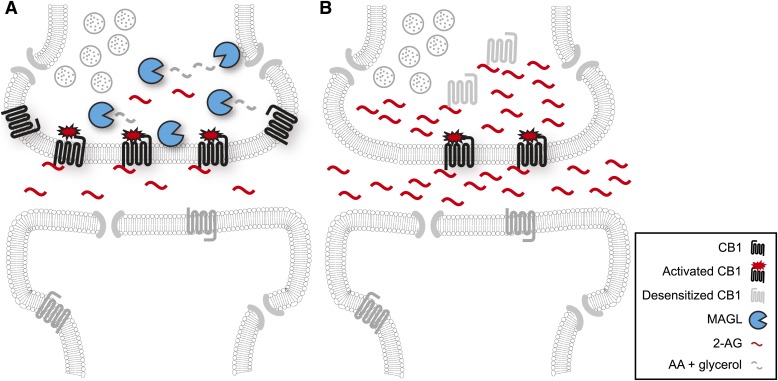Fig. 6.
Chronic MAGL disruption causes functional antagonism of the central endocannabinoid system. (A) In a wild-type brain, MAGL serves to limit the magnitude and duration of 2-AG signaling at CB1 by hydrolyzing this lipid to arachidonic acid. (B) Chronic pharmacological or genetic MAGL inactivation results in prolonged elevations in 2-AG that in turn cause the desensitization and downregulation of CB1 receptors. The net result of these adaptations is functional antagonism or reduced CB1 signaling.

